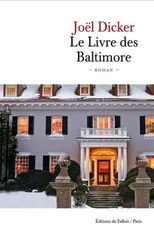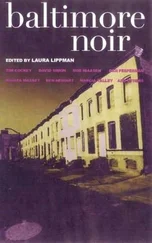Owen Wister - Lady Baltimore
Здесь есть возможность читать онлайн «Owen Wister - Lady Baltimore» весь текст электронной книги совершенно бесплатно (целиком полную версию без сокращений). В некоторых случаях можно слушать аудио, скачать через торрент в формате fb2 и присутствует краткое содержание. Жанр: Вестерн, на английском языке. Описание произведения, (предисловие) а так же отзывы посетителей доступны на портале библиотеки ЛибКат.
- Название:Lady Baltimore
- Автор:
- Жанр:
- Год:неизвестен
- ISBN:нет данных
- Рейтинг книги:5 / 5. Голосов: 1
-
Избранное:Добавить в избранное
- Отзывы:
-
Ваша оценка:
- 100
- 1
- 2
- 3
- 4
- 5
Lady Baltimore: краткое содержание, описание и аннотация
Предлагаем к чтению аннотацию, описание, краткое содержание или предисловие (зависит от того, что написал сам автор книги «Lady Baltimore»). Если вы не нашли необходимую информацию о книге — напишите в комментариях, мы постараемся отыскать её.
Lady Baltimore — читать онлайн бесплатно полную книгу (весь текст) целиком
Ниже представлен текст книги, разбитый по страницам. Система сохранения места последней прочитанной страницы, позволяет с удобством читать онлайн бесплатно книгу «Lady Baltimore», без необходимости каждый раз заново искать на чём Вы остановились. Поставьте закладку, и сможете в любой момент перейти на страницу, на которой закончили чтение.
Интервал:
Закладка:
"Edward," said Mrs. Braintree to her husband, in a frightfully clear voice, "it was at Chambersburg, was it not, that the Southern vandals burned the house in which were your father's title-deeds?"
Edward, who, it appeared, had fought through the whole Civil War, and was in consequence perfectly good-humored and peaceable in his feelings upon that subject, replied hastily and amiably: "Oh, yes, yes! Why, I believe it was!"
But this availed nothing; Juno bent her great height forward, and addressed Mrs. Braintree. "This is the first time I have been told Southerners were vandals."
"You will never be able to say that again!" replied Mrs. Braintree.
After the bell and Daphne had stopped, the invaluable Briton addressed a genial generalization to us all: "I often think how truly awful your war would have been if the women had fought it, y'know, instead of the men."
"Quite so!" said the easy-going Edward "Squaws! Mutilation! Yes!" and he laughed at his little joke, but he laughed alone.
I turned to Juno. "Speaking of mutilation, I trust your nephew is better this evening."
I was rejoiced by receiving a glare in response. But still more joy was to come.
"An apology ought to help cure him a lot," observed the Briton.
Juno employed her policy of not hearing him.
"Indeed, I trust that your nephew is in less pain," said the poetess.
Juno was willing to answer this. "The injuries, thank you, are the merest trifles — all that such a light-weight could inflict." And she shrugged her shoulders to indicate the futility of young John's pugilism.
"But," the surprised Briton interposed, "I thought you said your nephew was too feeble to eat steak or hear poetry."
Juno could always stem the eddy of her own contradictions — but she did raise her voice a little. "I fancy, sir, that Doctor Beaugarcon knows what he is talking about."
"Have they apologized yet?" inquired the male honeymooner from the up-country.
"My nephew, sir, nobly consented to shake hands this afternoon. He did it entirely out of respect for Mr. Mayrant's family, who coerced him into this tardy reparation, and who feel unable to recognize him since his treasonable attitude in the Custom House."
"Must be fairly hard to coerce a chap you can't recognize," said the Briton.
An et cetera now spoke to the honeymoon bride from the up-country: "I heard Doctor Beaugarcon say he was coming to visit you this evening."
"Yais," assented the bride. "Doctor Beaugarcon is my mother's fourth cousin."
Juno now took — most unwisely, as it proved — a vindictive turn at me. "I knew that your friend, Mr. Mayrant, was intemperate," she began.
I don't think that Mrs. Trevise had any intention to ring for Daphne at this point — her curiosity was too lively; but Juno was going to risk no such intervention, and I saw her lay a precautionary hand heavily down over the bell. "But," she continued, "I did not know that Mr. Mayrant was a gambler."
"Have you ever seen him intemperate?" I asked.
"That would be quite needless," Juno returned. "And of the gambling I have ocular proof, since I found him, cards, counters, and money, with my sick nephew. He had actually brought cards in his pocket."
"I suppose," said the Briton, "your nephew was too sick to resist him."
The male honeymooner, with two of the et ceteras, made such unsteady demonstrations at this that Mrs. Trevise protracted our sitting no longer. She rose, and this meant rising for us all.
A sense of regret and incompleteness filled me, and finding the Briton at my elbow as our company proceeded toward the sitting room, I said: "Too bad!"
His whisper was confident. "We'll get the rest of it out of her yet."
But the rest of it came without our connivance.
In the sitting room Doctor Beaugarcon sat waiting, and at sight of Juno entering the door (she headed our irregular procession) he sprang up and lifted admiring hands. "Oh, why didn't I have an aunt like you!" he exclaimed, and to Mrs. Trevise as she followed: "She pays her nephew's poker debts."
"How much, cousin Tom?" asked the upcountry bride.
And the gay old doctor chuckled, as he kissed her: "Thirty dollars this afternoon, my darling."
At this the Briton dragged me behind a door in the hall, and there we danced together.
"That Mayrant chap will do," he declared; and we composed ourselves for a proper entrance into the sitting room, where the introductions had been made, and where Doctor Beaugarcon and Mrs. Braintree's husband had already fallen into war reminiscences, and were discovering with mutual amiability that they had fought against each other in a number of battles.
"And you generally licked us," smiled the Union soldier.
"Ah! don't I know myself how it feels to run!" laughed the Confederate. "Are you down at the club?"
But upon learning from the poetess that her ode was now to be read aloud, Doctor Beaugarcon paid his fourth cousin's daughter a brief, though affectionate, visit, lamenting that a very ill patient should compel him to take himself away so immediately, but promising her presently in his stead two visitors much more interesting.
"Miss Josephine St. Michael desires to call upon you," he said, "and I fancy that her nephew will escort her."
"In all this rain?" said the bride.
"Oh, it's letting up, letting up! Good night, Mistress Trevise. Good night, sir; I am glad to have met you." He shook hands with Mrs. Braintree's husband. "We fellows," he whispered, "who fought in the war have had war enough." And bidding the general company good night, and kissing the bride again, he left us even as the poetess returned from her room with the manuscript.
I soon wished that I had escaped with him, because I feared what Mrs. Braintree might say when the verses should be finished; and so, I think, did her husband. We should have taken the hint which tactful Doctor Beaugarcon had meant, I began to believe, to give us in that whispered remark of his. But it had been given too lightly, and so we sat and heard the ode out. I am sure that the poetess, wrapped in the thoughts of her own composition, had lost sight of all but the phrasing of her poem and the strong feelings which it not unmusically voiced; there Is no other way to account for her being willing to read it in Mrs. Braintree's presence.
Whatever gayety had filled me when the Boston lady had clashed with Juno was now changed to deprecation and concern. Indeed, I myself felt almost as if I were being physically struck by the words, until mere bewilderment took possession of me; and after bewilderment, a little, a very little, light, which, however, rapidly increased. We were the victors, we the North, and we had gone upon our way with songs and rejoicing — able to forget, because we were the victors. We had our victory; let the vanquished have their memory. But here was the cry of the vanquished, coming after forty years. It was the time which at first bewildered me; Juno had seen the war, Juno's bitterness I could comprehend, even if I could not comprehend her freedom in expressing it, but the poetess could not be more than a year or two older than I was; she had come after it was all over. Why should she prolong such memories and feelings? But my light increased as I remembered she had not written this for us, and that if she had not seen the flames of war, she had seen the ashes; for the ashes I had seen myself here in Kings Port, and had been overwhelmed by the sight, forty years later, more overwhelmed than I could possibly say to Mrs. Gregory St. Michael, or Mrs. Weguelin, or anybody. The strain of sitting and waiting for the end made my hands cold and my head hot, but nevertheless the light which had come enabled me to bend instantly to Mrs. Braintree and murmur a great and abused quotation to her —
"Tout comprendre c'est tout pardonner."
Читать дальшеИнтервал:
Закладка:
Похожие книги на «Lady Baltimore»
Представляем Вашему вниманию похожие книги на «Lady Baltimore» списком для выбора. Мы отобрали схожую по названию и смыслу литературу в надежде предоставить читателям больше вариантов отыскать новые, интересные, ещё непрочитанные произведения.
Обсуждение, отзывы о книге «Lady Baltimore» и просто собственные мнения читателей. Оставьте ваши комментарии, напишите, что Вы думаете о произведении, его смысле или главных героях. Укажите что конкретно понравилось, а что нет, и почему Вы так считаете.










